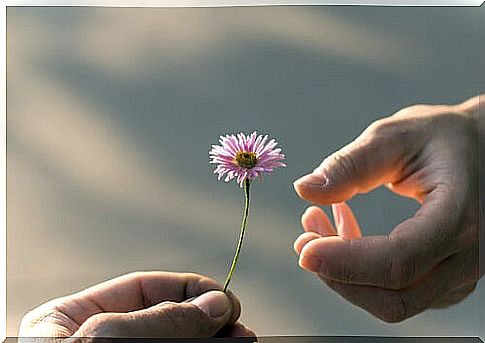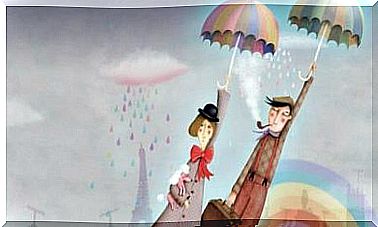No Stable Relationship(s) Without Reciprocity

We live in a society in which most people keep accurate records (instinctively ‘calculate’) exactly how much they give and how much they subsequently receive or at least expect to receive in return. We spend a lot of time on such internal analyses: whether others compensate us enough, even reward. Reciprocity, ie mutual exchange of equal value, has thus become a kind of social currency.
And that causes a lot of suffering, because we often think we receive less than we were entitled to, less than we gave to the other. As a result, we feel unfairly treated and dissatisfied with our interpersonal relationships. But reciprocity need not be a source of unease when you discover how much it helps us to truly value our relationships and when you begin to experience the intrinsic value of giving for yourself.
What we expect from others
When we do something for someone, or do others a favor, we usually expect to be “paid back” in equal measure. And because we rarely feel sufficiently compensated, that causes many problems, such as frustration. It is as if they have used us, because – in our experience – they have given too little in return.
Expecting others to do certain things a certain way and then being disappointed in doing so can fuel mistrust or cynicism. You may be wondering if you want to keep giving. It may become more attractive to be more reserved in that regard.
Delight others
What usually motivates us to give is that we have an interest in it and therefore want them to feel good. We care about their well-being, meeting their needs and so on. And initially we want nothing in return.

But when we find ourselves in a dire situation and we sense a lack of support, because people don’t react as we hoped and expected, that’s extra sour. Now that we need a helping hand, no one is willing to offer it, despite the fact that we didn’t hesitate for a moment when they asked for our help. And so it slowly dawns on us that what we receive hardly seems to have anything to do with what we give to others.
The need for appreciation
Although we are not very aware of it, it is very common that we do others a favor because we are actually hoping to receive something from them. There is something desperate about our giving, because we secretly desire nothing more than to be the receiving party ourselves.
We assume that if ‘I look after my fellow man, they will also take care of me’. But that is a misconception, which merely leads to more suffering and conflict in the relationship sphere. We can see that it does not work, even though we are still convinced that it countless times with my own eyes it should.
It is healthier to take good care of yourself right away and not expect anything from others. Because then you are not obliged, in return, to please someone else first. Of course, that doesn’t mean you shouldn’t or shouldn’t stand by anyone. That’s entirely up to you, as long as you don’t exchange it in your mind for what is to be heard.
In this way the giving itself will become its own satisfaction.

Valuing reciprocity means allowing yourself to receive and enjoy what others give you. If you don’t expect anything from anyone, you will naturally experience more and more satisfaction and gratitude.
Think of reciprocity as a spontaneous, voluntary action, where each person can decide without hesitation what, when and how much they want to give. Only if you fully respect others in that regard will the true merit of reciprocity be yours.
Everyone decides for themselves
Everyone decides for themselves whether and to what extent they want to do something for others and what they are willing to give to others. In short, no one owes anyone anything. We are all free and under no obligation to reciprocate, just as no one is under any obligation to us.
Consequently, you can stop measuring how much others give you, because that is and remains their own decision. In fact, they don’t have to give you anything, even if you did something for them just before. Conversely, however, you should not feel obligated or indebted to them in any way.

Balance in interpersonal relationships
When we learn to respect other people’s decisions, we also discover a new way of understanding relationships. There is a good chance that you will receive much more from some people than you had counted on at all, while these are usually not the same people to whom you have given a lot.
This is the balance that naturally exists in our interpersonal relationships. Yet we are always surprised when we get more than we expected. But precisely in this way , reciprocity transforms itself into a wonderful social instrument of spontaneous exchange, in which gratitude and satisfaction predominate.
Those who sense the true nature of reciprocity feel freer and more responsible for their own decisions. At the same time, you are better able to accept and appreciate what others give you in return. Understanding reciprocity in this way will make your relationships much more fulfilling—both for you and for the other person.









